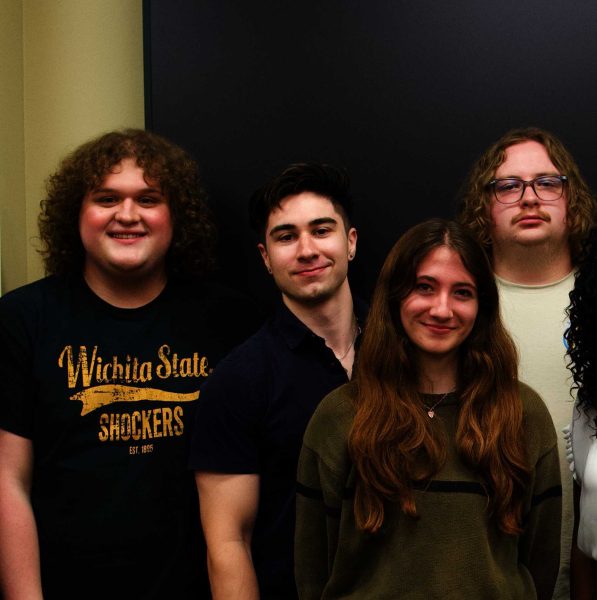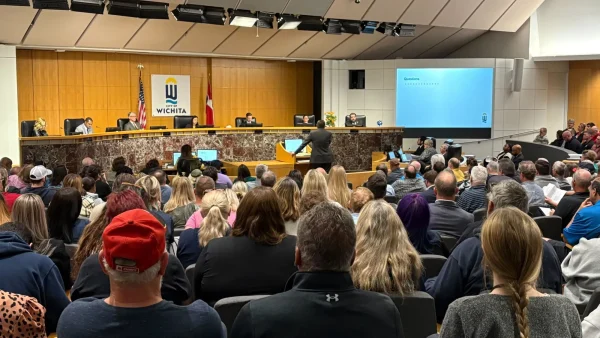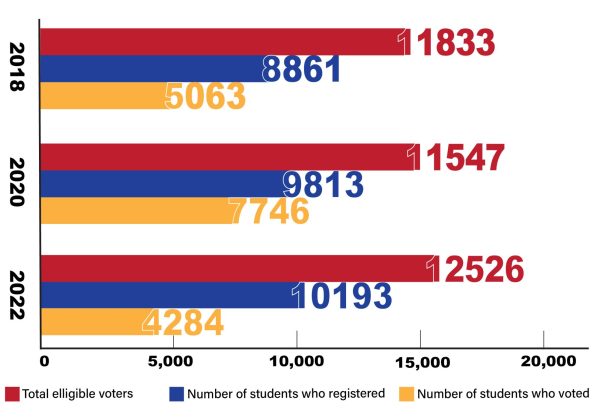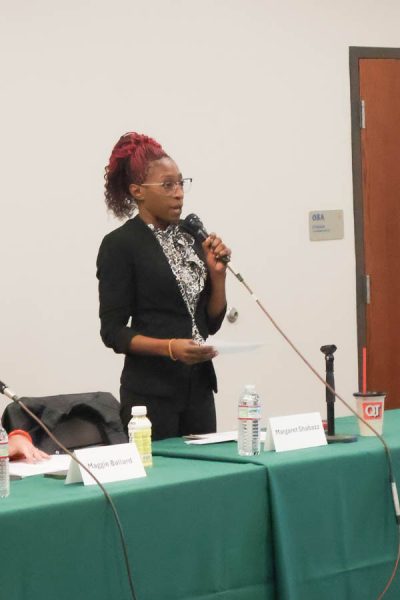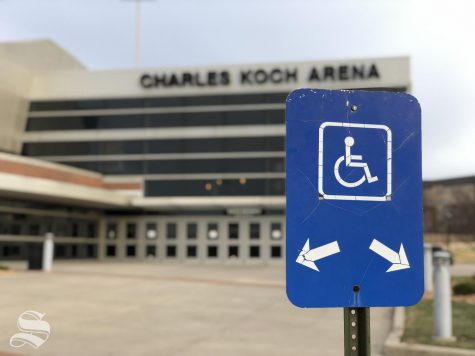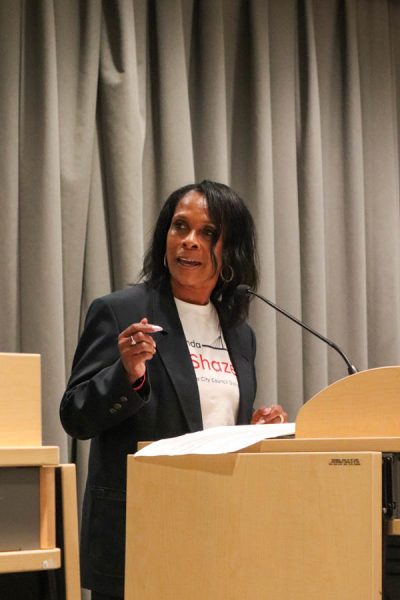Wichita State student government closes door on student fees deliberations
The Sunflower was not allowed to enter the room while deliberations about student fees — including its own request — were discussed.
Deliberations about student fees conducted behind closed doors. The student fees committee deliberations took place in RSC 258.
The Student Fees Committee closed the door to its meeting room in the Rhatigan Student Center Friday afternoon to deliberate about how to allocate between $9.53 and $9.82 million in student fees — claiming SGA is not a state agency, student fees are not state funds and, therefore, the meeting could be held behind closed doors.
The Sunflower presented its student fees request to the student fees committee Friday morning from about 11 a.m. to 11:45 a.m. At noon, the committee was supposed to begin deliberations on the Educational Opportunity Fund and Student Service Fees recommendations it would give to student government, who would then vote on the budget. That’s when Teri Hall, Wichita State’s vice president for student affairs, closed the doors to reporters and the public.
A reporter from the Wichita Eagle, and two reporters from The Sunflower, were told by Hall that the meeting was closed to the public.
Wichita Eagle reporter Suzanne Tobias asked for a specific reason for closing the meeting, and Hall said the committee would consult with its attorney before making a decision. She then closed the door. About four minutes later, all of the students on the committee walked out of the committee meeting and exited the RSC, closing the door behind them. They would not respond to The Sunflower’s questions as they walked away.
The students on the student fees committee are Paige Hungate, SGA president; Breck Towner, SGA vice president; Marshall Johnson, SGA treasurer; Kylen Lawless, SGA chief of operations; Shelby Rowell, SGA senator; and Walter Wright, SGA senator. Haley Ensz, SGA senator, was also present but she is on the Educational Opportunity Fund committee, which also makes recommendations about student funds.
The student fees committee recommends allocations for organizations, including The Sunflower, on campus that receive student fees as part of their annual budgets. Those organizations range from Student Affairs to the College of Fine Arts Programming to the Rhatigan Student Center.
About 20 minutes after leaving the RSC, the students, led by Hungate, returned. Hungate approached reporters and said the meeting would be closed “according to discussions with people.”
Asked to elaborate, she said she and the other students had consulted with “the general counsel’s office” who advised her it was “a student government decision.”
Hungate said she was advised “student fees aren’t public funds, and that SGA is not a state agency.”
Student fees are collected by the Wichita State and mandatory for students taking classes at the university. Wichita State is a state institution, governed by the Kansas Board of Regents.
According to student fee revenue projections for next year obtained through the Kansas Open Records Act, the committee was considering how to allocate $9.53 million if student fees stay the same as this year next year and up to $9.82 million if student fees increase by 3.1 percent.
The Kansas Open Meetings Act is a law requiring that the business of the government — including state agencies, such as state universities — be conducted in the open.
According to student government’s legislative journal: “the authority granted to the [Student Government] Association … is derived from and shall be subject to the authority of the Board of Regents and the President of the University.”
“In our discussions, we’re not a public agency, so we’re not bound to KOMA,” Hungate said, referring to the Kansas Open Meetings Act. “So we’re having it be closed, but we invite you to be there next Wednesday at 6:30 p.m.”
That’s when the student senate will debate non-fixed-line items on the fees budget and eventually vote on the proposed budget. That vote will be a recommendation to Wichita State President John Bardo, who then must decide whether to present the proposed budget to the Kansas Board of Regents for approval.
“I’m not trying to have a discussion about this right now,” Hungate said to Tobias after being asked why Hungate thought the meeting should be closed. “I’m just trying to tell you what our decision has been made by student government association.”
According to the Kansas Open Meetings Act, meetings that are not required to be open to the public can still be open — at the discretion of the board holding the meeting.
Asked again why she thought the meeting should be closed, Hungate said, “it’s not an opinion; it’s just the legality,” as she walked back to the meeting room.
At that point, Hall stepped in to answer questions from reporters.
“We’ve delayed an hour at this point in time,” Hall said, “and we need to make some decisions. So, if you’d like to come to SGA next week, you’re welcome.”
Asked by The Sunflower if this was a student government decision or a student affairs decision, Hall said it was a decision made by student government.
Hall said the students went to speak with the general counsel, “because the bylaws say, it’s a student government decision. That’s why they went over to do it.”
District Attorney Marc Bennett, whose office handles open meetings law, could not be immediately reached for comment Friday.
After the closed meeting, Hall said she would not comment on the meeting until Monday.
———
Jenna Farhat contributed

Chance Swaim was the Editor in Chief of The Sunflower from fall 2017 to spring 2018.
Swaim was a graduate student in the English Department working...

Jenna Farhat was the news editor of The Sunflower. Farhat majored in creative writing.




